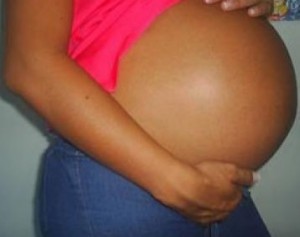Women call for inclusion of Non-Medical Consumables in NHIS
 Pregnant Women in the Upper East Region have appealed to Government to include Non-Medical Consumables and Ambulance Services in the National Health Insurance Scheme (NHIS).
Pregnant Women in the Upper East Region have appealed to Government to include Non-Medical Consumables and Ambulance Services in the National Health Insurance Scheme (NHIS).
Speaking to the Ghana News Agency in an interview at separate platforms at the various Health facilities in the Region, majority of the women in labour said they faced financial difficulties in purchasing the Non-Medical Consumables, such as antiseptics, sanitary pads, soap and buckets among others.
They also said it was difficult for most of them to pay for the cost of transport to health facilities during labour and referrals.
Madam Mary Akolgo, a 37-year-old expectant mother, who was referred by the Bolgatanga Regional Hospital to go for a scan, told the GNA that she cannot afford to pay the GH¢20 charged by the private laboratories.
The situation cuts across all the District Health facilities in the Region. The Regional Hospital and most of the District health facilities do not have scanning facilities and refer pregnant women in labour to private facilities for such services.
Most of such facilities are not covered by the NHIS.
Some of the pregnant women said although they were provided with some medicines under the NHIS, in some instances they were issued with prescriptions to purchase drugs from Pharmacy shops.
“Due to these financial barriers most of our colleagues are unable to attend health facilities to deliver, and some even end up losing their lives.
“Whilst commending the Government for instituting the free maternal health care for us, we are also appealing to the President and his Government to make it absolutely free for us to attend health facilities to deliver safely”, Mrs Adukpoka Agambila, a 38-year-old woman in labour at the Bolgatanga Regional Hospital stated.
The Administrator of the Bolgatanga Regional Hospital, Mr James Atampugre, said the National Health Insurance does not cover the concerns raised by the women and that they were supposed to purchase the drugs and items they mentioned.
The Regional Director of the National Health Insurance Scheme, Mr Amos Akugre said the Scheme covered healthcare beginning from antenatal to post antenatal but did not cover non-medical consumables.
The Programme Manager of the Presbyterian Health Service –North, Mr Rudolf Abugnaba Abanga, said the Non-Medical Consumables like antiseptics were very critical to preventing maternal deaths, and stressed that it was important for Government to listen to the appeal of the women or else Ghana’s dream of achieving the Millennium Development Goal four and five would not be realized.
He disclosed that his outfit under the “Community Health Project” in 2014 presented briefs to the Upper East Parliamentary Caucus and the Parliamentary Select Committee on Health and other stakeholders to draw government’s attention to the problem but they are yet to get any positive response.
“The fees absorbed by the NHIS include service charges and cost of drugs. Currently women in labour are asked to report to health facilities with their own Non-Medical consumables. The acquisition of these Non-Medical consumables come at a cost and potentially remains a financial barrier to the rural and urban poor from accessing skilled attendants for delivery”, he added.
Source: GNA
